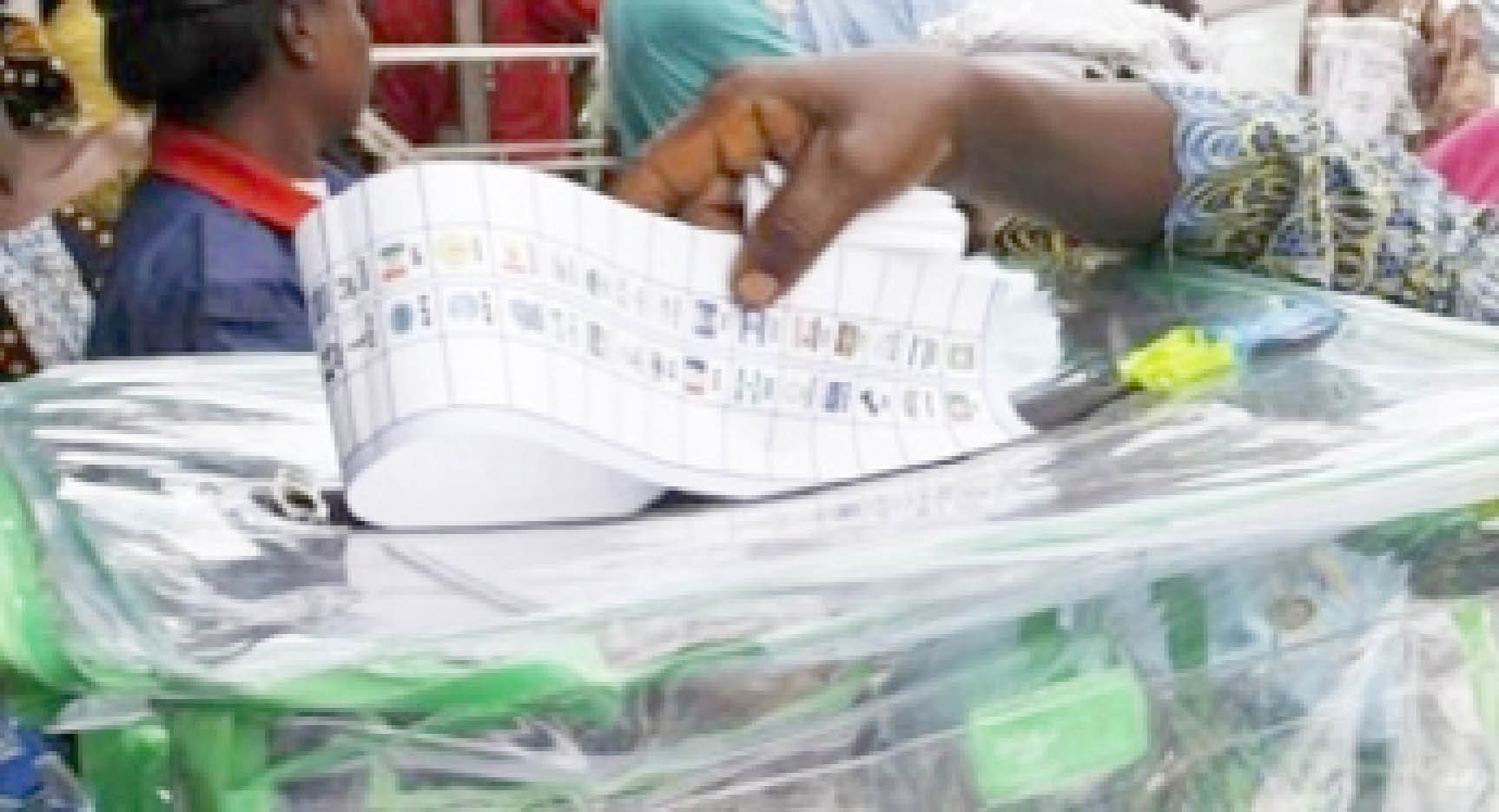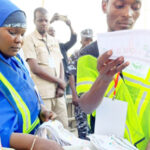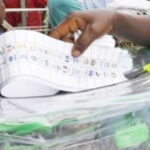There are strong indications that the voting pattern in the forthcoming presidential election in Nigeria will defy the known trend, where two leading candidates and their parties split the bulk of the votes.
Eighteen candidates are jostling for the highest office in the country, with about four of them at the pole position in the contest. This development, according to pundits, has made the election too close to call.
The Centre for Democracy Development (CDD), in its factsheet titled ‘How Election Winners Emerge’, reminds the presidential candidates that even if they receive the most votes in the election, they must win over a quarter in two-thirds of the states and the FCT.
The major contenders are Mr Peter Obi of the Labour Party, Asiwaju Bola Ahmed Tinubu of the All Progressives Congress (APC), former Vice President Atiku Abubakar of the Peoples Democratic Party (PDP) and Dr Rabiu Kwankwanso of the New Nigeria People’s Party (NNPP).
Fintiri escapes unhurt as truck crushes vehicles in his convoy
We welcome the Kolmani oil field in northern Nigeria
Basically, emerging as the winner of a presidential poll in Nigeria goes beyond securing the highest number of votes. The winning candidate is also required by the constitution to receive at least a quarter (25 per cent) of the votes in the two-third of the states (24 out of 36) and the Federal Capital Territory (FCT).
Meanwhile, it has been observed that meeting the second requirement could be pretty difficult in the 2023 presidential election and there may be a runoff, as the leading candidates currently appear to only have considerable acceptance in their respective regions – a factor that may largely determine the voting pattern.
Notably, the Independent National Electoral Commission (INEC) has also envisaged the possibility of a second poll. The INEC chairman, Prof Mahmud Yakubu, said in Abuja on November 18, that the commission “will print 93million ballots for the first election and at the same time, print 93million ballots for runoff election in case a winner does not emerge from the first ballot.”
Previous election results
From 1999 to 2019, presidential elections in Nigeria were mainly a two-horse race. In 1999, there were only two candidates – Chief Olusegun Obasanjo who contested under the PDP and Chief Olu Falae of the Alliance for Democracy (AD).
Obasanjo polled 18.7million votes to defeat Falae, who got 11.1million. With the results, Obasanjo secured the highest votes and met the second requirement by receiving over a quarter of the votes in 32 states and the FCT.
In 2003, the two major candidates were Obasanjo, who was seeking a second term and Muhammadu Buhari of the then All Nigeria People’s Party (ANPP). Like in 1999, Obasanjo met the two requirements by polling 23.9million votes ahead of Buhari’s 12.5million.
In 2007, Umaru Musa Yar’adua of the PDP received 24.6million votes, defeating Buhari of the ANPP, who polled 6.6m.
“While Yar’adua easily passed the first requirement, lack of a detailed breakdown does not allow us to prove how he passed the second requirement,” the Centre for Democracy Development (CDD) disclosed in its fact sheet titled, “How Election Winners Emerge.”
Also, in 2011, the presidential poll was between two major contestants: Goodluck Jonathan of the PDP and Buhari on the platform of the Congress for Progressive Change (CPC). A former chairman of the Economic and Financial Crimes Commission (EFCC), Malam Nuhu Ribadu of the defunct Action Congress of Nigeria (ACN), was a distant third challenger.
Jonathan got 22.6m votes to defeat Buhari, who received 12.3m votes, while Ribadu polled over 2million. Like his predecessors, Jonathan easily fulfilled the second requirement by receiving over a quarter of the votes in 32 states and the FCT.
In 2015, Buhari and Jonathan slugged it out again. This time, Buhari contested under the APC, polling 15.4m votes to defeat Jonathan, who got 12.9m. Buhari met the second requirement by receiving over a quarter of the votes in 26 states and the FCT.
President Buhari sought reelection under the APC in 2019 and was up against his main opponent, Atiku, who contested under the PDP. Again, Buhari passed the first requirement by receiving 15.2m votes ahead of Atiku’s 11.3m votes. He also secured 25 per cent of the votes in more than two-third of the states (33 states) and the FCT.
Dynamics of 2023 presidential poll
Unlike the previous presidential elections which featured two main candidates, there are four major contenders seeking to take over power from President Buhari in 2023. This signals a potential variation in how Nigerians will vote and its effects on the election results.
While both requirements for winning the election were easily met in the previous polls, some analysts have noted that it may be difficult for any of the candidates with the highest votes to secure 25 per cent in at least 24 states and the FCT, given their current regional dominance.
The CDD director, Idayat Hassan, explained that factors such as insecurity and electoral violence could deepen the uncertainty about the outcome of the election if not properly addressed.
She said, “The 2023 presidential election will be contested by 18 candidates. It is important for these contestants and their supporters to note that even if their preferred candidates receive the most votes in the election, they must ensure they win over a quarter in two-thirds of the states and the FCT.
“It also highlights the importance of relevant institutions working to ensure that existing challenges, ranging from insecurity to voter register complaints are significantly addressed. This is because the inability of an election in even one state or local government area could lead to challenges over the legitimacy of whoever is elected.
“This uncertainty could lead to political instability during the post-election period as the country waits for a judicial resolution. Even at that, the judicial outcome could still be contested and lead to more upheaval as different groups strive to assert their claim to govern.
Understanding the constitutional provisions on how winners would emerge will help inform their campaign approach and help correct any misunderstanding or misinformation when the results are announced. This will help ensure a smooth transition period that hopefully enables the next administration to hit the ground running.”
Constitution and runoff
Section 134 of the 1999 Constitution sets out what happens if a candidate does not pass both requirements to be elected president.
Section 134 (3) states that “in a default of a candidate duly elected in accordance with subsection (2), there shall be a second election,” to be contested by the candidate who scored the highest number of votes and one who has “a majority of votes in the highest number of states.”
The CDD director further explained the provision of the constitution, saying that if there is a tie, then the candidate among them who has the most votes in the election will be the second candidate.
“During this election, the existing provisions still apply – where a candidate must have the majority of votes cast and also receive over a quarter of the votes cast in at least two-thirds of the states in the federation and the FCT to be declared winner.
“However, if neither of the two candidates is able to fulfill both requirements, INEC is mandated to conduct a third election between the two candidates. This time, the candidate with the most votes will be returned as president-elect,” Hassan added.
It will be a very competitive election – Analysts
A Political Science professor at the University of Abuja, Dauda Saleh, said that in the coming weeks, the major contenders would have more national appeal, depending on their effort to convince the electorate.
He said, “It will also depend on the number of governors a party has because once the governors are on the ground, the tendency is that membership of that political party will be more. The members are the ones who will bring out the voters. Many voters don’t come out of their own volition. Apparently, most people don’t think there is any government because they don’t feel the impact. You have to persuade them to go and vote.”
Asked if he foresaw a possible runoff, Saleh answered in the negative, but said “it will be a very competitive election.”
“It will be an outright victory. Let’s see what every candidate wants to bring on board. The harder any of them works, to my mind, the more votes the person can win,” he declared.
However, a former second vice president of the Nigerian Bar Association, Monday Ubani, did not foreclose a second ballot.
“With Peter Obi, the election can lead to a runoff to decide who the winner will be,” he said.
Ubani maintained that the election result would be determined by the ability of the candidates to go beyond their domains in order to secure the conviction of other regions, whose votes will be very necessary for a victory, adding that “things will become clearer when the election draws near.”

 Join Daily Trust WhatsApp Community For Quick Access To News and Happenings Around You.
Join Daily Trust WhatsApp Community For Quick Access To News and Happenings Around You.


